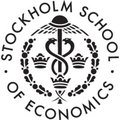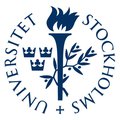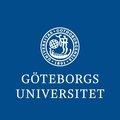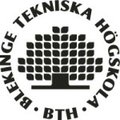MBA in Sweden
Renowned for its cutting-edge universities, Sweden offers an exceptional platform for aspiring business leaders to sharpen their skills and ignite their entrepreneurial spirit.
With a strong emphasis on practical learning, a commitment to gender equality, and a thriving startup culture, Sweden's MBA programs are designed to shape future leaders who can thrive in the global business landscape.
Join us as we explore the unique advantages of pursuing an MBA in Sweden, including top programs, costs, career prospects, and more.
Why Study MBA in Sweden
Sweden offers a unique blend of innovation, sustainability, and work-life balance that is particularly appealing to MBA students. It's the birthplace of global tech giants like Spotify and Ericsson, showcasing a commitment to innovation. Notably, Stockholm, the capital city, achieved the prestigious distinction of becoming the inaugural European Green Capital Award winner for its pioneering commitment to environmental sustainability.
Swedes deeply value work-life balance, with a standard 40-hour workweek complemented by generous parental leave and vacation days. The nation is also celebrated for its design excellence, having gifted the world with iconic brands such as IKEA and renowned fashion houses like H&M and Acne Studios.
The Scandinavian country is also the birthplace of the Nobel Prizes, recognizing outstanding contributions to science, literature, and peace. For MBA students, pursuing this degree in Sweden offers the chance to gain a global perspective in a forward-thinking and inclusive environment, providing a unique and enriching educational and career experience.
MBA Programs in Sweden
Whether you're seeking a traditional full-time MBA experience or an Executive MBA tailored for professionals, Sweden's business schools provide diverse options to suit your career goals and aspirations.
The most renowned MBA programs here include:
- Stockholm School of Economics - Executive MBA
- Stockholm Business School - Executive MBA
- The School of Business, Economics and Law (SBEL) at the University of Gothenburg - Executive MBA
- Blekinge Institute of Technology - MBA
- University of Gävle - MBA
MBA in Sweden Program Types & Duration
In Sweden, the most popular MBA options are the Full-Time MBA and the Executive MBA (EMBA). These programs serve a diverse range of students, including those who want a traditional full-time experience and experienced professionals looking to improve their leadership and management skills while still working:
Full-Time MBA. Full-time MBA programs in Sweden usually span two years and are ideal for recent graduates and early-career professionals. They offer an intensive curriculum, networking opportunities, and often include internships. This kind of program is designed for those looking to immerse themselves fully in their studies.
Executive MBA (EMBA). EMBA programs in Sweden typically last one to two years and are tailored for mid-career and senior-level professionals with substantial work experience. They are often part-time and flexible, allowing students to continue working. EMBA programs emphasize advanced curriculum, peer learning, and career advancement, making them suitable for professionals seeking leadership roles without interrupting their careers.
MBA in Sweden Eligibility
Eligibility requirements for MBA programs in Sweden can vary between universities and business schools, but here are some of the main criteria commonly expected:
- Bachelor's Degree. You typically need a bachelor's degree from a recognized institution. The field of your undergraduate degree may or may not need to be related to business or management, depending on the specific program. For example, Blekinge Institute of Technology’s MBA requires a Bachelor of Science in Engineering or one in a technical area.
- Work Experience. Most MBA programs in Sweden require a minimum of 2-3 years of relevant work experience, although some Executive MBA programs may require more.
- Language Proficiency. Since most MBA programs in Sweden are taught in English, you may need to demonstrate your proficiency in English through tests like TOEFL or IELTS, unless your previous education was conducted in English. For programs in Swedish, you may have to undergo the TISUS (Test in Swedish for University Studies) to prove your proficiency.
- Letters of Recommendation. You may be asked to provide letters of recommendation from professional or academic references who can vouch for your qualifications and potential as an MBA student.
- Statement of Purpose or Essays. In many programs, you will need to submit a statement of purpose or essays where you explain your goals, motivation for pursuing an MBA, and how the program aligns with your career aspirations.
- Resume/CV. You will typically need to provide a detailed resume or curriculum vitae (CV) outlining your educational and professional background.
- Interview. Some universities or schools may conduct interviews as part of the selection process to assess your suitability for the program.
MBA in Sweden Cost
Sweden combines a high standard of living with a top-notch education system. Although living costs can be relatively high, numerous scholarships and financial aid opportunities help make studying in Sweden accessible for international students.
Below, we will explore some of the tuition fees you can expect to pay at Swedish MBAs, as well as living expenses:
Tuition Fees
Tuition fees for MBA programs in Sweden can vary widely and typically fall within the range of SEK 112,000 to SEK 595,000, which is approximately €9,432 to €50,033. These fees depend on several factors, including the university, the program type, and whether you are eligible for exemptions as a Swedish, EU, or EEA student.
Many Swedish universities have a policy of exempting Swedish, EU, and EEA students from tuition fees. This exemption is a significant benefit for eligible individuals, as it means they can pursue an MBA in Sweden without the burden of tuition fees, making higher education more accessible.
It's also important to note that the tuition fees mentioned typically exclude Value Added Tax (VAT). In Sweden, the standard VAT rate is 25%. Therefore, you should consider that the final cost may include this tax when budgeting for your MBA studies.
Here is the full list of tuition fees for MBAs in Sweden:
| School | Tuition |
|---|---|
| Stockholm School of Economics | SEK 595,000 (€50,033) |
| Stockholm Business School | SEK 450,000 (€37,841) |
| The School of Business, Economics and Law (SBEL) at the University of Gothenburg | SEK 510,000 (€42,886) |
| Blekinge Institute of Technology | SEK 120,000 (€10,070); Swedish/EU/EEA students exempt |
| University of Gävle | SEK 112,000 (€9,432) Swedish/EU/EEA/Switzerland students exempt |
Living Costs
In Sweden, the estimated monthly living costs for a single person, excluding rent, amount to around 9,753 kr, which is approximately €820.
- When dining out, you can expect to pay between 90 kr and 190 kr (€7.57 - €15.98) for a meal at an inexpensive restaurant. If you're looking for a more upscale dining experience, a three-course meal for two people at a mid-range restaurant can range from 500 kr to 1,200 kr (€42 - €100.92).
- Transportation costs in Sweden can also vary. A one-way ticket for local transport typically ranges from 27 kr to 40 kr (€2.27 - €3.36), while a monthly pass for transportation can cost between 625 kr and 1,000 kr (€52.56 - €84.10).
- When it comes to utilities for an 85m2 apartment, which includes electricity, heating, cooling, water, and garbage, you can expect to pay anywhere from 460 kr to 2,000 kr (€38.69 - €168.20) per month.
- Housing costs vary depending on where you choose to live. In the city center, a one-bedroom apartment can range from 6,000 kr to 15,000 kr (€504.59 - €1,261.49) per month. If you opt for an apartment outside the city center, you can find monthly rents ranging from 4,500 kr to 12,000 kr (€378.45 - €1,009).
It's essential to recognize that these estimates provide a general overview, and actual costs may vary based on personal choices and specific locations within Sweden. To plan your budget accurately, it's advisable to research the current prices and expenses for your intended place of residence.
MBA in Sweden Careers
As an MBA graduate in Sweden, you will have the option to apply for a residence permit to seek employment after completing your studies. Pursuing an MBA in Sweden can lead to diverse career opportunities, as the country hosts a wide range of industries, including technology, healthcare, finance, and engineering. Graduates often find themselves well-positioned to contribute to Sweden's culture of innovation and entrepreneurship, whether by launching their own ventures or engaging in cutting-edge projects.
With numerous multinational corporations operating in the country, leadership roles within global organizations are also within reach. Gaining proficiency in Swedish can enhance prospects, particularly for roles involving local client or colleague interaction.
Several well-known Swedish companies and corporations are particularly appealing to MBA graduates, including:
- IKEA
- Volvo
- H&M
- Northvolt
- Klarna
- Spotify
- Mojang Studios
- VOI
- Swedbank
- Essity
- Ericsson
- Skanska
- Telia Company
- Atlas Copco
Average Salary in Sweden for MBA Graduates
The average salary for MBA graduates in Sweden is subject to variations influenced by factors like industry, experience, and location. Generally, MBA graduates in Sweden enjoy competitive salaries that often surpass the national average income.
On average, their annual earnings range from SEK 700,000 to SEK 1 million or even higher, equivalent to approximately €58,561 to €83,659 or more. However, it's crucial to acknowledge that these figures are subject to change over time and can significantly differ based on individual situations and career paths.
Here are some monthly salary examples for common roles typically obtained after completing an MBA in Sweden:
- Directors and chief executives: 90,100 kr (€7,537)
- CFO, Function or Middle Manager: 86,100 kr (€7,203)
- Information and communications technology service managers: 77,200 kr (€6,458)
- Personnel Manager, Function or Middle Manager: 68,200 kr (€5,705)
- Human Resource Managers, at Level: 68,200 kr (€5,705)
- Export Manager, Function or Middle Manager: 67,700 kr (€5,663)
- Financial and Investment Advisers: 66,800 kr (€5,588)
You can view more information on salary statistics here.
Can I Study MBA in Sweden Without GMAT?
Most MBA programs in Sweden do not require the GMAT (Graduate Management Admission Test) for admission. Instead, they often place greater emphasis on factors like your prior education, work experience, and other qualifications when considering applicants.
It's essential to check the specific admission requirements of the MBA program you're interested in, as many programs have adopted a holistic approach to evaluating applicants beyond standardized test scores like the GMAT.
Can I Study MBA in Sweden Without Work Experience?
Most MBA programs in Sweden typically require a minimum of 2-3 years of work experience as part of their admission criteria. Some Executive MBA (EMBA) programs may require even more extensive work experience due to their executive-focused nature.
If you don't meet these work experience requirements, there are plenty of alternative Master's programs in management and business that you can explore, which may have different or no work experience prerequisites
Can I Study for an MBA in Sweden in English?
Most universities and business schools in Sweden teach their MBA programs in English, reflecting its global significance. However, there are exceptions, like Stockholm Business School, which combines both Swedish and English in its curriculum.
It's also important to know that a large portion of the Swedish population, nearly 86%, is proficient in English. This means that not only will you likely find MBA programs in English, but you'll also find it easy to communicate and manage daily life in Sweden using English.
Sweden offers an MBA experience like no other, with its thriving startup ecosystem, breathtaking natural wonders, and a work-life balance culture that champions personal growth. So, don't miss out on this opportunity—embrace the Swedish spirit of innovation and set out on your MBA adventure in this extraordinary part of the world.



